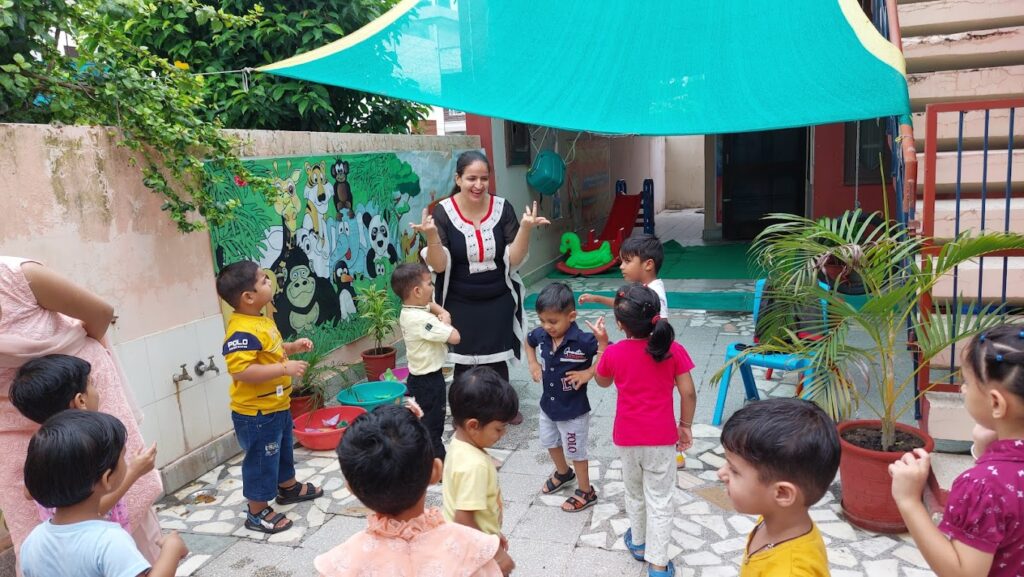
Importance of Sharing in Early Years of Childhood
“Be somebody who makes everybody feel like a somebody”
-Kid President
A candle loses nothing by lighting another candle. Teach your children that sharing is not going to bring them any loss rather it will make them more significant people than they are in life. Make them aware that sharing multiplies joy and divides grief.
Kids generally show a possessive attitude while someone asks them to share their belongings like toys and when they feel that their parents’ or teachers’ attention is divided. This is because kids develop a special attachment to their toys, clothes and even the parents paying more attention to their siblings will provoke them. This is a very normal thing among kids and that’s not a thing to worry about at this young age. But a gradual change in this possessive attitude should be brought about and kids should be encouraged to share.
‘First Born Syndrome’ is a usual phenomenon among the first born kids during the initial years after the birth of their younger siblings. These kids feel insecure and can’t handle those times when their younger sibling is paid more attention and care and starts pressing for love. They cry for the baby’s toys and clothes and demand whatever attention and pampering is been given to their sibling. In some scenario, sometimes some kids even use to physically hurt their younger ones.
Single Child is also found to have hesitation and discomfort in sharing as they are given whatever they want and all the love and pampering of their family is been received by them. They don’t generally have those circumstances at home where they are asked to share something; not even their parents’ love.
Sharing is a very essential social skill to build healthy and strong bonds between people and it collectively contributes to the well being and happiness in one’s life. Sharing also helps in the cognitive and emotional development of children. It teaches kids the values of compromise and fairness. They gradually learn through sharing that if they give some of what they have to others, they could get some of what they want too.
In building friendships, playing with cooperation, in taking turns peacefully, while negotiations and to cope up with disappointment, sharing is necessary.
Now let’s see how we can inculcate the habit of sharing among the kids.
Modelling:
Being an example is the best way to teach your kid. Teachers sharing food between each other in front of kids, sharing pen- pencil and stationary stuff in front of them etc inspire them to do the same.
Positive Reinforcement:
Appreciating the kids when they share something will inspire them to do it more. Appreciations, praise, rewards are something kids always love and that can definitely motivate them.
Point out good sharing in others:
When you see someone sharing, show your child that and tell them how good a thing that person is doing. Teachers and parents indicating a person or his deed as good kindles in child the quest to be that person who will be shown as a person who does good by their teacher or parents to somebody else.
Talk about Sharing:
When you frequently talk about something and shows your kids cartoons or movies that show the sharing habit, it will get imprinted in your child’s mind that sharing is something so good that they should cultivate that in them.
Sharing ‘Rules’ at schools and preschools:
To set apart the preschool from home with the intention to teach children to share, some rules can be followed like taking turns in using things like toys, crayons, swings, see-saws etc. Rules like asking for things, sharing seats etc slowly teaches them to share.
Sharing Activities:
Activities that involve sharing like collective art work in which kids have to share crayons, threads etc can be conducted. Some organising works where they have to share supplies and ideas also help in training them to share.
Play games that involve sharing:
Games where children have to show their unity as groups, share ideas etc helps in nurturing in them sharing mentality. Language games like telling in pairs “You give me red car, I give you blue car” itself imparts the importance of sharing in them.
Timed Sharing:
“Learning how to take turns is the first step in sharing”, as said by Mann. Toys and rides at park can be given as per fixed time slots so as to train kids to take turns so that every child get a turn to play with equal duration.
Also, when children are found not sharing properly and dominating the weaker kids, taking the toy away for sometime might be a good gesture to inform them that what they did is wrong and if they repeat the mistake, they will lose their chance and time to play with the toy.
Sharing is caring. Parents and teachers should be role models in it as this is a very essential life skill and moral value. This is something that is very important for the social and cognitive development of your child. Charity begins at home. Train your children sharing by practicing it at home and make it a fun time rather than forcing them for the same.
See Also: Importance of Socialization in Early Childhood
Enquire us for Hello Kids Preschool Franchise
